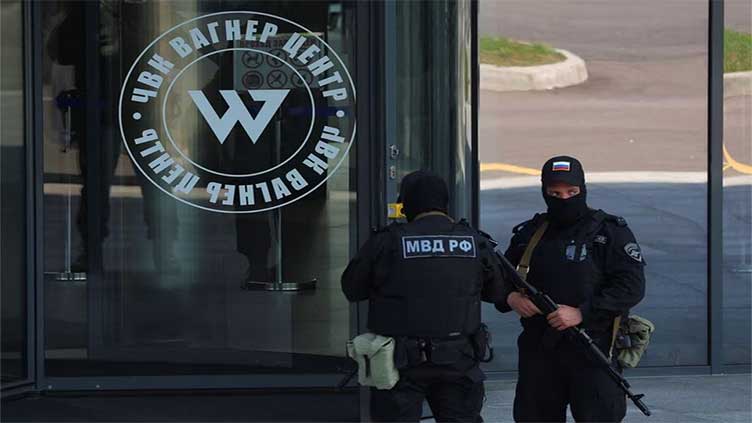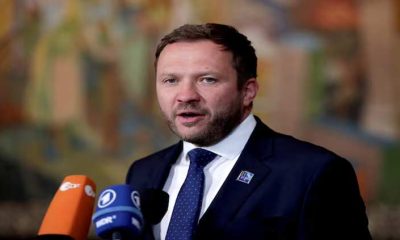Timofei Rudenko can’t seem to stay out of jail.attack on Ukraine, in Kyiv, Ukraine August 11, 2023. REUTERS/Gleb Garanich Acquire Licensing Rights
The 30-year-old was arrested and detained five times in the space of two months over the summer for a series of misdemeanours including swearing at passers-by and disobeying police officers, according to Russian court records.
On each day he was released, after serving sentences of between 10 and 15 days at a petty crimes jail in Moscow, he was promptly picked up for a new minor offence and returned to custody, a review of the publicly available documents shows.
Advertisement · Scroll to continue
Rudenko’s mother Yulia Kiselyova said she saw her son being apprehended for the fifth time on July 7, seconds after leaving the jail: “They put him in a car right there and took him to a new court,” she told Reuters, insisting he hadn’t done anything wrong and was targeted because he’d posted criticism of the war in Ukraine on social media in recent months.
Two weeks later, the stakes leapt.
Rudenko, a former Russian military psychologist, was arrested for a sixth time on July 21 – this time for allegedly justifying terrorism on the internet, a more serious crime punishable by up to seven years in prison, according to court records, which give no further details about his alleged offence pending a trial.
Kiselyova said her son, now locked up at a pre-trial detention facility in Moscow, denied all the alleged crimes.
Reuters was unable to independently verify Kiselyova’s version of events or to contact Rudenko in detention. Rudenko’s lawyers declined to discuss his case, while Russian police and prosecutor authorities didn’t respond to requests for comment.
A Reuters review of Rudenko’s social media account on Telegram didn’t find any messages critical of the war. “There are no posts anymore,” Kiselyova said, without elaborating.
Three Russian human rights lawyers described Rudenko’s experience as an example of “carousel arrests” – multiple busts for minor offences, with each arrest carried out on the same day a suspect finishes serving a jail term, keeping them in near-constant custody. They said the practice was one of the tools being deployed by Russian authorities in their clampdown on popular dissent against the 18-month-old conflict in Ukraine.
Russia’s top investigative body, the Investigative Committee, the Interior Ministry and the Prosecutor General’s Office didn’t respond to requests for comment on the phenomenon of carousel arrests or individual cases.
Consecutive jailings aren’t illegal, as Russian law allows judges to order “administrative” detentions of up to 30 days for minor infractions.
Nonetheless, carousel arrests can buy investigators time to dig into a person’s past and online activity to potentially open more serious criminal cases, according to Russian rights group OVD-Info, whose data on detentions of anti-war protesters is widely cited in international media and provides a rare independent barometer of the scale of Russia’s crackdown.
“The pressure on opposition-minded and anti-war activists is growing before our eyes,” said Ivan Vtorushin, who oversees a team of more than 400 volunteer lawyers defending freedom of expression cases at Moscow-based OVD-Info.
A Reuters review of Russian court records identified seven cases of carousel arrests this year, with the suspects involved arrested and jailed between two and five times in succession.
Valeriya Vetoshkina, a lawyer with First Department, a Russian rights NGO specialising in the legal defence of people accused of espionage or treason, said she knew of about 10 examples of carousel arrests so far in 2023, including the seven identified by Reuters. She added that the true figure was likely to be higher.
PUTIN: ‘PEOPLE WHO HARM US’
Since Russia invaded Ukraine – in what Moscow describes as a special military operation – its laws have been tightened to curb public criticism of the conflict. For example “discrediting the army” and spreading “fake news” about alleged Russian atrocities in Ukraine, two new crimes placed on the statute book in March 2022, can land dissenters in prison for years.
In December, opposition politician Ilya Yashin was sentenced to more than eight years in prison for spreading fake news about the army over a YouTube video released in April in which he discussed evidence uncovered by Western journalists of a Russian massacre of Ukrainians in Bucha, near Kyiv, and cast doubt on Moscow’s claim that such reports had been fabricated.
In April this year, Russia’s parliament voted to extend the punishment for treason to life imprisonment from 20 years, with lawmakers citing unprecedented threats to Russia from Ukraine and its Western allies. Justifying terrorism, the charge levelled at Rudenko, criminalises public comments supportive of groups or individuals deemed terrorists by Moscow.
Russian President Vladimir Putin, when asked by reporters in late July whether he was alarmed by the arrest of Russians who had “doubts” about the war, suggested the crackdown on dissent was justified at a time of national peril.
“I think that there should be a certain attitude towards those people who harm us inside the country,” Putin said. “We must bear in mind that in order to achieve success, including in the conflict zone, we need to follow certain rules.”
Carousel arrests aren’t a wholly novel phenomenon, according to the three lawyers who said the practice was less common before the war and largely confined to dissidents such as Alexei Navalny, opposition politicians like Yashin and members of punk protest group Pussy Riot, rather than ordinary citizens.
The use of carousel arrests reflects how authorities are experimenting with different tactics to curb dissent though remain intent on prosecuting cases by the book, said Lauren McCarthy, an associate professor of legal studies and political science at the University of Massachusetts Amherst who has researched wartime protest laws in Russia.
“Russian authorities aren’t dragging someone off the street and sticking them with a criminal charge,” McCarthy told Reuters.
BALLOON STUNT MAN ‘SCARED’
Leniye Umerova, a marketing executive for a fashion brand in Russian-annexed Crimea, was arrested and detained four times between December and May for a series of minor, or administrative, offences including disobeying a police officer’s request and border-crossing violations, according to court records. Then on May 5, the Federal Security Service (FSB) flew her to Moscow and arrested her on espionage charges, the documents show.
The 25-year-old’s brother Aziz Umerov said she was now in Lefortovo prison in the capital. He said his sister, who had declined to take a Russian passport after the 2014 annexation of Crimea, was innocent of any wrongdoing and he believed she had been targeted because she had criticized the Ukraine war online and had posted information on social networks about the persecution of Crimean Tatars in Crimea after the annexation.
“Even after the very first administrative arrest in December last year, I knew that all this would not end quickly for my sister,” he told Reuters.
Reuters was unable to contact Umerova in detention or independently verify her brother’s assertions about the reasons for her arrests. The FSB didn’t respond to questions about her case.
A Reuters review of Umerova’s Instagram account found several messages critical of the Russian invasion and supportive of Ukraine. “The world has to stop Putin. Right now is the time to act,” she said in one post on Feb. 24 last year, the date of the full-scale invasion. Her page also featured pictures of people killed in the war and footage of a pro-Ukraine rally.
Not all “carousel” arrests lead to more serious criminal charges, and for some detainees, time spent behind bars is frightening enough.
Gevorg Aleksanyan, a Moscow-based lawyer working with OVD-Info, defended a man arrested in May after he tied helium balloons to a flag of the Freedom of Russia Legion, designated a terrorist organisation by Moscow, and set it aloft. A video of the stunt went viral on social media. The Freedom of Russia Legion is a Ukrainian-based paramilitary group of Russians who oppose Putin and the invasion of Ukraine.
After serving 15 days on hooliganism charges over the stunt, Dmitry Golovlyov was detained again as he was leaving jail and sentenced to another 15 days for “demonstrating extremist symbols,” according to Aleksanyan, and court records confirmed.
Golovlyov, a 34-year-old builder, didn’t respond to a Reuters request for comment. He was not charged a third time, Aleksanyan said. “He is very scared after this situation,” the lawyer added.
Meanwhile, ex-military psychologist Rudenko, who had been working as a mechanic after leaving the forces in 2015, remains in custody in Moscow. A date has yet to be set for his trial for justifying terrorism. His mother Kiselyova isn’t hopeful.
“As the proverb goes: prepare for the worst,” she said.
Post Views: 68


 Sports3 months ago
Sports3 months ago
 Fashion3 months ago
Fashion3 months ago
 Sports3 months ago
Sports3 months ago
 pakistan3 months ago
pakistan3 months ago
 pakistan3 months ago
pakistan3 months ago
 World3 months ago
World3 months ago
 World3 months ago
World3 months ago
 Sports2 months ago
Sports2 months ago























